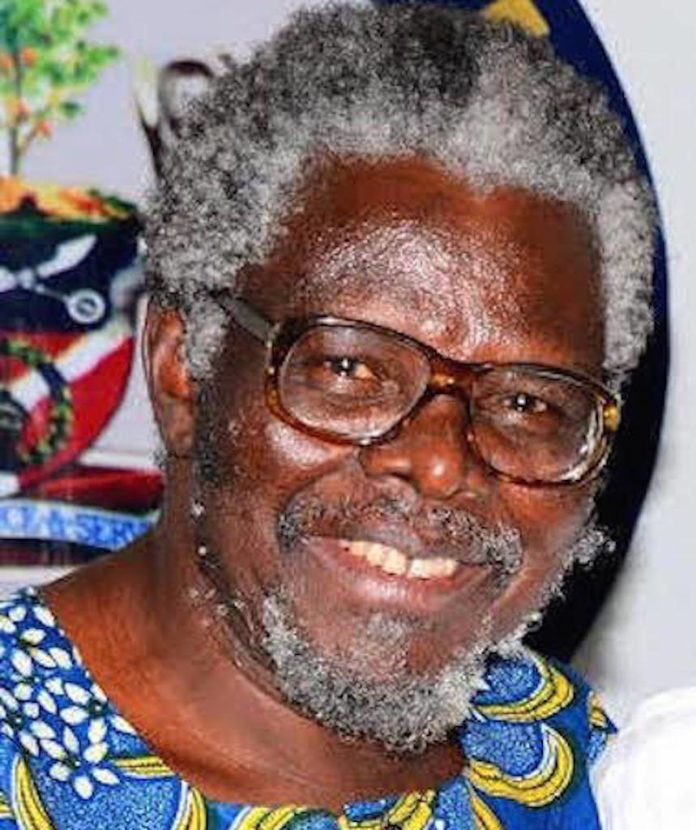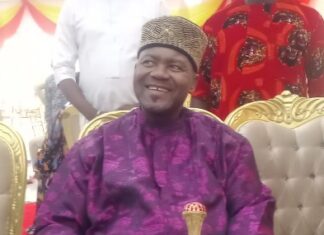By Edwin Madunagu
At the end of the Nigerian Civil War (July 1967 – January 1970), and in preparation for a possible return to civilian rule, the ruling class established—or rather, creatively adapted—the dual principle of “zoning” and “rotation” of key political party offices and government positions among geopolitical segments of their class.
Some leading ideologues of the newly re-united class claimed that the principle emerged from one of the lessons of that bitter conflict: the need to protect and promote “national unity” at all time. The theory was that with this principle and complementary ones, the Nigerian ruling class, following the United Nations at the end of the Second World War, could vow, “Never Again!”. These ideologues were young, brilliant and idealistic. But since their horizon did not go beyond capitalism and the capitalist ruling class, their brilliant idea could not even survive the first substantive test.
It should be conceded, however, that it was not all the main factions and tendencies in this re-united but nonetheless non-homogeneous class that adopted the principle of “zoning and rotation”—or, more correctly, promoted it to a lead ideological principle. It was the dominant ruling class coalition which later appeared as Second Republic National Party of Nigeria (NPN) that was in the forefront of the campaign which it saw as furthering and strengthening the aims of “federal character” principle enshrined in the new (1979) Constitution. The latter was a document whose final shape the party, at its formative stages, had dominantly influenced.
A number of the other ruling class parties of the Second Republic (1979-1983) acknowledged the principle of “zoning and rotation” in their basic documents. Those that did not explicitly endorse or acknowledge the principle underlined the need for the protection and promotion of “national unity” which they all understood as the unity of Nigeria’s ruling class. But the Nigerian Left simply allowed its revolutionary programme of Workers’ Power, Popular Democracy and Socialism to subsume and transcend the principle of “zoning and rotation”. We may as well remark here that in those days, the Nigerian Left had the habit of summarily rejecting any idea that came from the ruling class. Though this was a legitimate protective mechanism, it was undialectical as a political tactic.
From records of what the NPN fed to the nation at the beginning of the Second Republic, the principle of “zoning and rotation,” as it applied to their party at the federal level, can be sketched like this: First, party offices and government positions are aggregated into a single list of positions. Then the states of the federation and the federal capital are grouped into a number of zones set up for the purpose of “sharing” the aggregated positions. The aggregated positions are then grouped into the number of zones. Finally, the groups of positions are shared between the zones in a “fair and balanced” manner—previously agreed upon. At the end of a 4-year presidential tenure, the groups of positions rotate among the zones—again, in a previously agreed order.
This agreement was scheduled to be first tested in late 1981 or early 1982 (that is, half way into President Shehu Shagari’s first tenure) when party congresses and the process of nominating candidates for the 1983 general elections were scheduled to begin. The test collapsed disastrously. The national caucus of NPN was not able to confirm in practice what had been agreed on paper. Neither the grouping of offices nor the rotation of the groups of offices could be confirmed. A “genius” even suggested that the position of the President of the Federal Republic of Nigeria should be above rotation!
The principle of “zoning and rotation” of positions was replaced by “allocations” dictated by the dominant coalition of factions and tendencies in the party. Since then, although neither the ruling class nor any of its leading political formations has disavowed the principle, no attempt to revive and put it into effect has proceeded beyond the stage it reached in 1982 or risen to the 1982 brilliance.
Why did the test of “zoning and rotation” so beautifully set down on paper by the NPN collapse so disastrously? The late Professor Claude Ake appeared to answer this question in a lecture he delivered a decade later at a Guardian event in Lagos. Speaking in 1992 on the prospects of Nigeria returning to civilian democratic rule, the globally-respected social scientist sounded pessimistic. He said something which may be paraphrased like this: “Members of Nigeria’s ruling class, the capitalist class, cannot practise democracy, stand as equals or operate in partnership. If any two of them are together one must be on top of the other, never side by side. That is the logic of their political economy, their history and their culture.”
The immediate inspiration for this particular article came from a media statement made recently by Senator Shehu Sani on the movement of Nigeria’s presidency in 2023. Shehu Sani is recognized as a consistent human rights activist and a progressive Nigerian politician. In 2015 he contested and won the Kaduna Central Senatorial seat on the platform of the rising All Progressives Congress (APC). For the four years he was in the Nigerian Senate (2015-2019), Sani labored to remain true to his credentials of Leftist populism. Failing, predictably, to get his party’s re-nomination for the 2019 general elections, he sought and obtained a nomination from the Peoples Redemption Party (PRP), a radical social-democratic party led by the veteran Leftist politician, Balarabe Musa. He lost the senatorial contest, again predictably.
The experience narrated above merely re-confirms the historically-tested thesis that a true Leftist who strays into a bourgeois formation as a “revolutionary-at-large”, that is, without the background support of a revolutionary movement to which she or he is loyal, will either be completely absorbed and neutralized, turned into a traitor or be lucky to crash out alive.
Senator Sani was reported by the Sunday Punch of August 25, 2019 to have told journalists at a press conference in Abuja the previous day that the 2023 presidency “may elude the South if the South-East and South-West clamouring for it are not united”. For the avoidance of doubt, Sani said that “rotation of power is what I prescribe and stand for. Whether that power goes to the South-East or South-West is dependent on the people of the South”. He, however, warned that if any of the dominant political parties refuses to accept “power shift”, presidency may still elude the South. The major parties should therefore be persuaded to accept the principle.
My limited comment on Comrade Shehu Sani’s proposal will be the conclusion to this article. It is clear that the proposal is addressed neither to the Nigerian Left nor to Nigeria’s popular masses. It is addressed to Nigeria’s capitalist ruling class. It is the ruling class that talks of “North”, “South”, “South-East”, “South-West”, etc. as if these entities are classless or class-homogenous. While some fractions of the ruling class actually do not believe in the existence of classes others assume that every reasonable person should know that when rulership is discussed the reference is always to the ruling class. They are “Nigeria”; and the various geopolitical zones are the recognized segments of the ruling class!
Against Shehu Sani’s proposal, let there be a more democratic proposal which, in addition to being a real ideological challenge to the ruling class, will also be seen as issuing logically from this apparent difficulty in locating the presidency!
In place of the present office of the President, let there be a Collective Presidency or Presidential Council of six equal members, each member representing a geopolitical zone. The tenure of the Council should be four years and the headship within that tenure should rotate between the members every eight months.
Madunagu, mathematician and journalist, writes from Calabar, Cross River State.













